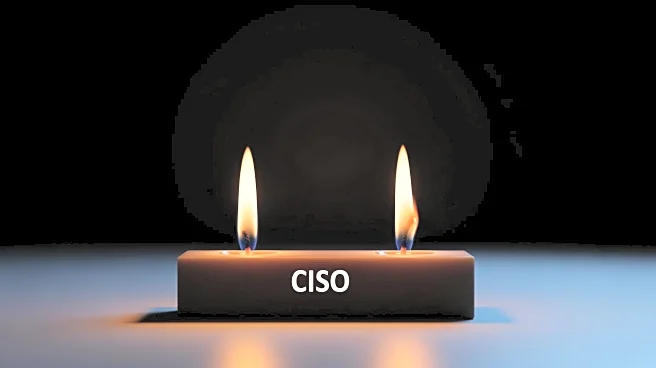What's Happening?
The issue of burnout among Chief Information Security Officers (CISOs) is becoming increasingly prevalent in the cybersecurity industry. Burnout, as defined by the World Health Organization in 2019, is an occupational
phenomenon characterized by exhaustion, cynicism, and reduced efficacy. In the cybersecurity sector, this condition has become endemic, affecting not only CISOs but also their teams. The role of a CISO has evolved into one of constant crisis management, with responsibilities that often outweigh their authority. This relentless pressure, coupled with the need to manage complex threats, contributes to the high levels of stress and burnout experienced by these professionals. Experts like Lisa Ventura, CEO of the AI and Cyber Security Association, and Andy James, founder of Custodian360, highlight the severe impact of burnout on decision-making, team leadership, and overall security posture.
Why It's Important?
The increasing burnout among CISOs has significant implications for the cybersecurity industry and the organizations they protect. Burnout can impair decision-making, leading to delayed security investments and missed threat intelligence, which can compromise an organization's security. Additionally, burned-out CISOs may struggle with communication and leadership, potentially creating a toxic work environment that exacerbates stress among their teams. This situation poses a risk not only to the security of critical systems and data but also to the overall effectiveness and resilience of cybersecurity operations. As the demand for cybersecurity professionals continues to grow, addressing burnout is crucial to maintaining a robust defense against cyber threats.
What's Next?
To combat CISO burnout, organizations need to implement strategies that address the root causes of stress and provide adequate support for cybersecurity leaders. Techniques such as Integrative Restoration (iRest), a yoga-based practice with scientific validation, have shown promise in treating burnout by promoting deep relaxation and mental restoration. By adopting such methods, organizations can help CISOs manage stress more effectively, potentially improving their performance and the security posture of their organizations. Additionally, fostering a supportive work environment and ensuring that CISOs have the necessary authority and resources to fulfill their roles can mitigate the risk of burnout.
Beyond the Headlines
The issue of CISO burnout also highlights broader challenges within the cybersecurity industry, such as the need for better mental health support and the recognition of neurodivergence among professionals. Understanding the unique stressors faced by CISOs and their teams can lead to more effective interventions and a healthier work environment. Moreover, addressing burnout can enhance the overall resilience of cybersecurity operations, ensuring that organizations are better equipped to handle the increasing complexity and frequency of cyber threats.











